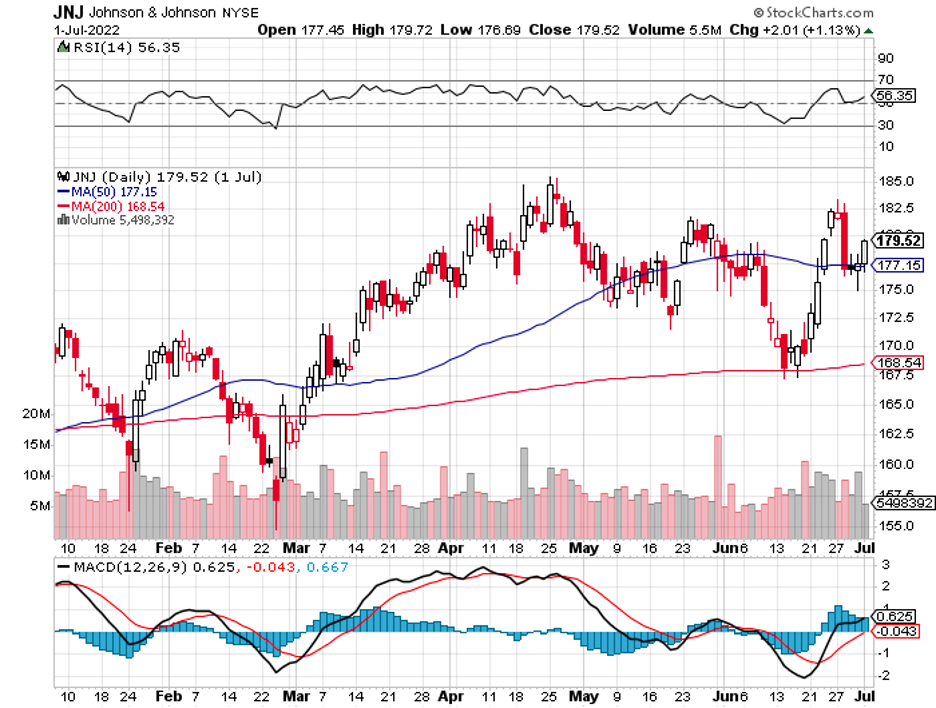An AAA-Rated Stock Poised to Deliver Market-Beating Returns
More than six months after what appeared to be a never-ending assault on the biotechnology and healthcare industries, the sector seems to be slowly reviving.
While it is still too early to declare the pullback over, there are a few companies that provide a ray of hope for investors.
In the US, only four stocks have recorded a market capitalization of $1 trillion or higher: Apple (APPL), Alphabet (GOOGL), Amazon (AMZN), and Microsoft (MSFT). This year's market crash saw Tesla (TSLA) and Meta Platforms (META) departure from this elite group.
The market-wide selloff also made it more difficult for stocks to reach the $1 trillion mark. However, this does not necessarily preclude them from achieving this goal in the future.
Companies are rapidly expanding and equipped with the right tools and strategies to capitalize on growth opportunities, making them prime candidates to make the $1 trillion cut in a couple of years.
One of them is Johnson & Johnson (JNJ).
Almost everyone is familiar with JNJ's century-old brands, such as Band-Aids and Listerine. What many people probably do not realize is that the company's med-tech and pharmaceutical segments account for the vast majority of its total revenue.
In 2021, its pharmaceuticals segment alone comprised 55% of JNJ sales, while its medical devices unit contributed 29% to the company’s top line.
So far, the most promising drug in JNJ’s pharmaceutical segment is Tremfya. First-quarter sales for this psoriasis treatment jumped to a whopping 41% year over year to record an annualized $2.4 billion.
Meanwhile, JNJ's med-tech segment is poised for massive growth as a result of the strong demand for its electrophysiology products. These devices, used to keep hearts beating normally, have been identified as lucrative revenue streams and growth drivers in the long run.
The company has been working on spinning off its consumer segment into a separate publicly traded entity in the following months. This means that investors with JNJ stock will eventually end up owning shares of two different companies by 2023.
The decision to spin off its consumer health segment is part of the company's effort to shed a cyclical segment and become a health pure play focused on pharmaceuticals and medical devices.
Hence, now is an excellent time to buy JNJ shares.
While JNJ isn’t known as a high-growth stock, the company’s strategies have the potential to spur exponential growth and send shares soaring.
The next decade will be crucial for the company's success as it transforms. If the company executes its plans successfully, its current market capitalization of $467 billion could slowly but steadily increase to approximately $1 trillion.
J&J will be able to invest and concentrate its resources on segments with high sales and margins, which should increase the company's income and cash flows at a faster rate than at present.
Furthermore, JNJ's plan is expected to increase shareholder returns through higher dividends and share repurchases because of its growing cash flow. With these factors combined, JNJ's stock price will undoubtedly rise, as will its market cap.
On top of these, JNJ offers a 2.6% dividend yield. Admittedly, this isn’t remarkably high. However, investors can rely on its steady rise. Moreover, JNJ is a Dividend King. In fact, it recently raised its payout for the 60th year in a row.
If these aren’t enough to cement the company’s reputation as a solid investment, consider the fact that JNJ is one of the largest holdings in Warren Buffett’s (BRK.A) portfolio.
It’s also one of the only two publicly traded companies with the coveted AAA credit rating from S&P. For context, the US government only has an AA rating. Needless to say, this makes JNJ one of the safest—if not the safest—income stock to date.
Overall, JNJ has been diligent in getting all of its ducks in a row and is poised to provide market-beating returns to patient investors.






